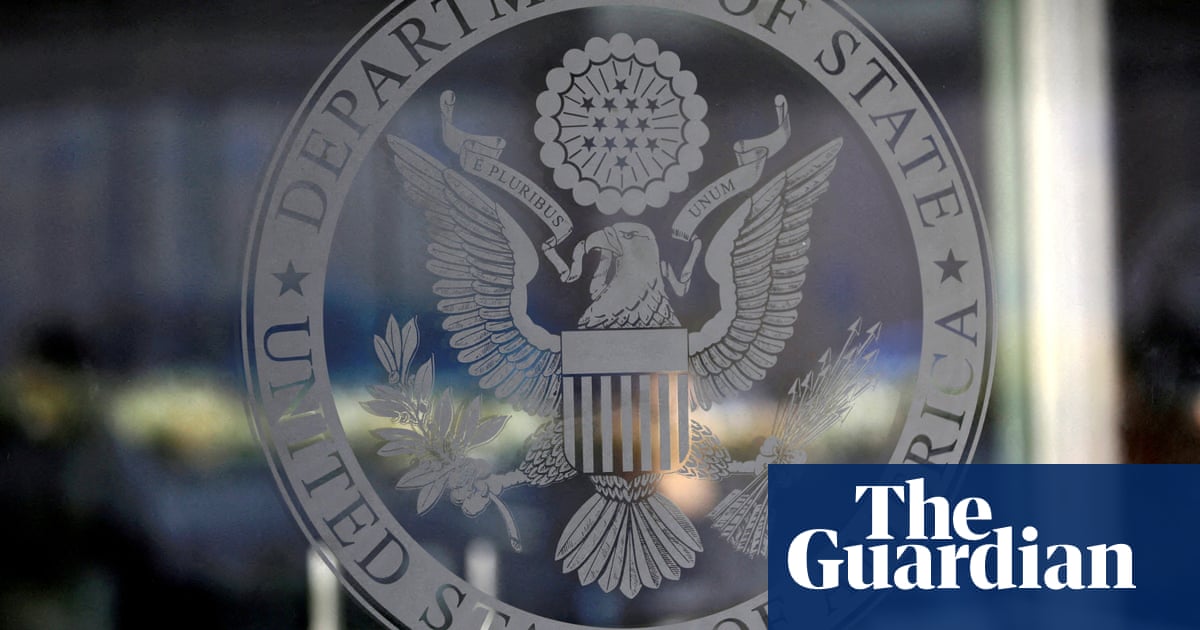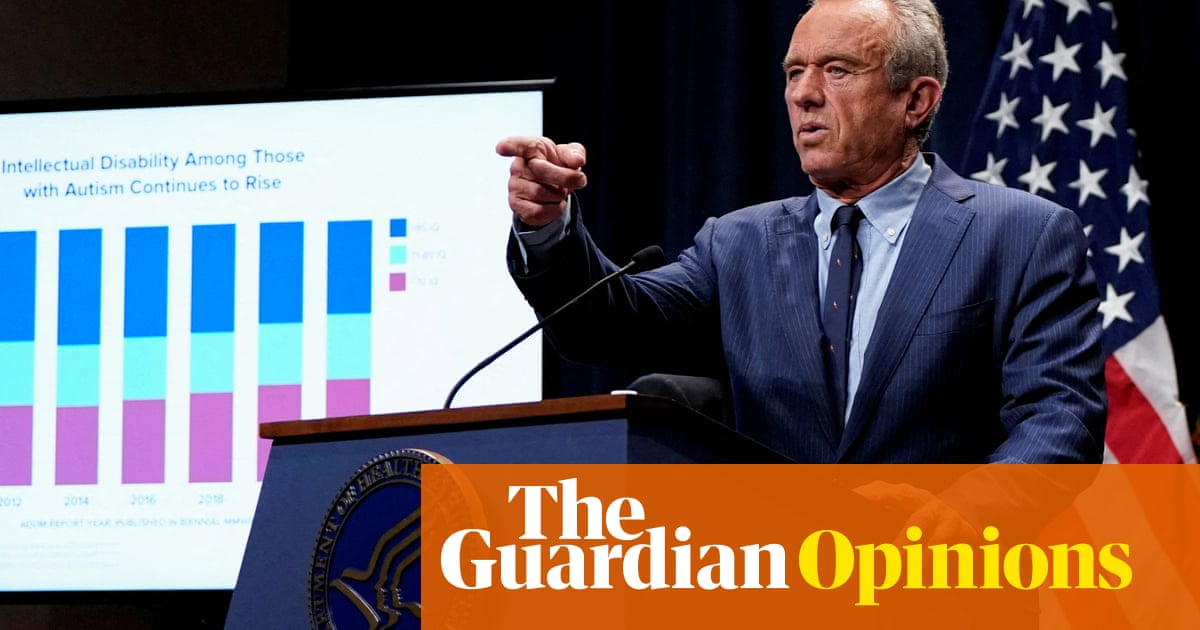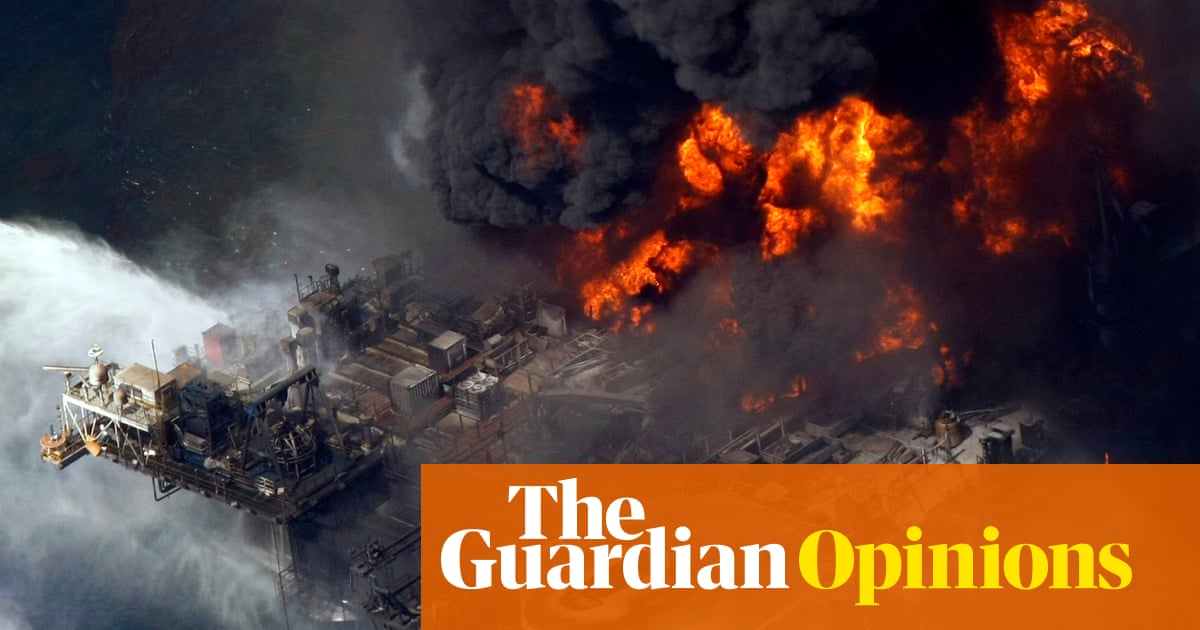Last month, I joined nearly 500 former and current employees of National Geographic, where I was executive vice-president and chief science and exploration officer for 17 years, urging the institution to take a public stance against the Trump administration’s reckless attacks on science. Our letter pointed out that the programs being dismantled are “imperative for the success of our country’s economy and are the foundation of our progress and wellbeing. They make us safer, stronger and more prosperous.” We warned that gutting them is a recipe for disaster.
In the face of this danger, none of us can remain silent.
I say this from the unique perspective of having been closely involved in the two most significant environmental disasters in US history – the Exxon Valdez and Deepwater Horizon oil spills. Fifteen years ago this Sunday, a massive explosion tore through the BP Deepwater Horizon drilling rig and unleashed an environmental catastrophe that devastated the Gulf of Mexico. The explosion triggered the release of more than 3m barrels of oil that polluted 1,300 miles of coastline from Louisiana to Florida. Eleven lives were lost, ecosystems were ravaged and the economic toll soared into the billions.
I served on the National Commission on the BP Deepwater Horizon Oil Spill, which investigated the root causes of the disaster, and before that I led the federal government’s implementation of the Exxon Valdez Oil Spill Restoration Plan. I have witnessed first-hand the human and economic toll exacted by these events. Men and women who, for generations, had made a living from the sea were suddenly confronted with the possibility that an entire way of life would be lost.
Despite such painful lessons of the past, we find ourselves once again hurtling toward disaster. The Trump administration’s personnel and programmatic cuts at science, environmental and safety agencies, and the wholesale rollback of environmental regulations, threaten to unravel decades of progress in safeguarding our nation. These actions aren’t just misguided – they’re a dangerous rejection of the hard-won knowledge gained from former crises and a gamble we cannot afford to take.
Among the many alarming moves by the Trump administration are plans to weaken offshore drilling safety measures implemented in response to the Deepwater Horizon calamity, such as the reversal of the Biden administration’s ban on drilling in sensitive coastal areas, including the Arctic, and the closure of regional offices responsible for oil spill response. Eliminating these measures demonstrates a callous disregard for lessons learned at a staggering human and economic cost.
Disturbingly, these actions are but a small part of a larger effort to weaken environmental regulation and oversight under the guise of restoring government efficiency. Take the recent rollback of dozens of Environmental Protection Agency health and safety regulations and the reported plan to eliminate the agency’s scientific research office. The administration claims these moves will unleash American energy and lower the cost of living, when in fact the only thing they’re guaranteed to achieve is undermining fundamental protections that keep our air and water clean. The mass layoffs and plans to dismember the National Oceanic and Atmospheric Administration (Noaa), where I was deputy administrator from 1997 to the end of 1999 and prior to that its general counsel, have nothing to do with cost savings – they’re an outright assault on science. Targeting programs that monitor ocean health, track ecosystem changes and study climate impacts – essential to understanding and mitigating looming threats – will leave us blind to and defenseless against the dangers ahead.
Cuts to science funding amplify the harms, jeopardizing our ability to innovate solutions, assess risks and respond effectively to crises. In 2010, we lacked even basic data about ocean conditions in areas around the ruptured Deepwater Horizon well. This absence of critical knowledge hindered response and recovery efforts, including understanding the impacts of using oil dispersants in the deep ocean. After the spill, robust government support for science enabled researchers to develop new response and cleanup technologies, better understand long-term ecological impacts, and provide critical insights that helped shape environmental and safety policy. Without government support, these advances would have been impossible – and they will be impossible in the future as funding is slashed.
The Trump administration’s insistence that its actions will reduce bureaucratic burdens or spur economic growth is false and deliberately misleading. It’s gaslighting on a national scale. The only sure result is that the burden of risk will be shifted on to communities, small businesses and ordinary Americans. The destruction of habitats and livelihoods is not an abstract consequence of environmental disasters. They devastate families, cripple economies, poison food supplies and leave communities struggling for decades. Businesses are boarded up, and community members suffer life-altering health consequences. After the Deepwater Horizon spill, losses in commercial and recreational fishing, tourism and property values amounted to tens of billions of dollars; cleanup and restoration costs exceeded $60bn – far surpassing what preventive measures would have required.
after newsletter promotion
Trump and his industry allies will paint such an event as an unforeseeable tragedy, a terrible mishap, a sad accident. Don’t buy it.
As we mark this somber anniversary, we cannot allow the cautionary tales of Exxon Valdez and Deepwater Horizon to fade into history, only to be repeated when the next horror strikes. Science and environmental protections are our first line of defense against catastrophe. Now is the time to demand that our government stop the madness and commit to strong environmental and safety regulations, rigorous scientific research, and adequate funding for the agencies tasked with protecting our health and shared resources. The price of ignoring science and dismantling regulations is far too high.
-
Terry Garcia was National Geographic’s executive vice-president and chief science and exploration officer for 17 years. He also served as the assistant secretary of commerce for oceans and atmosphere and deputy administrator of Noaa, as well as its general counsel

 German (DE)
German (DE)  English (US)
English (US)  Spanish (ES)
Spanish (ES)  French (FR)
French (FR)  Hindi (IN)
Hindi (IN)  Italian (IT)
Italian (IT)  Russian (RU)
Russian (RU)  5 hours ago
5 hours ago
























Comments